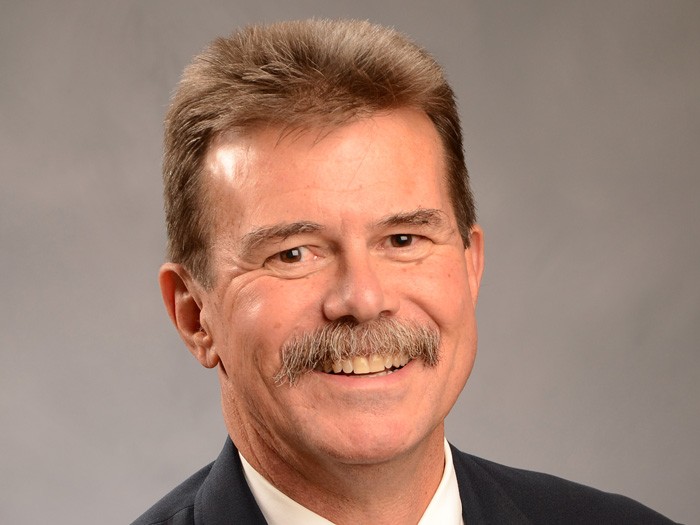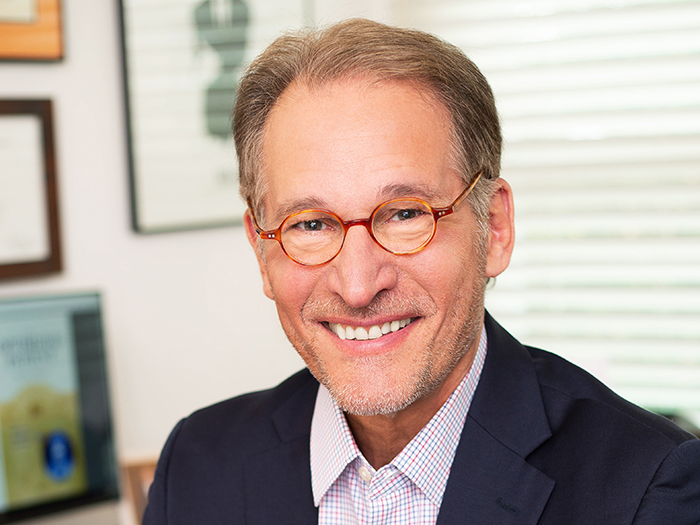Workers' Comp Profile
A Rugged Path to Occupational Health

Working as an oil field roughneck and Alaska bush doctor are among early occupational experiences that shaped Will Gaines understanding of injury treatment long before becoming Liberty Mutual’s National medical director.
While working pipeline construction in North Texas and Southern Oklahoma the summer after graduating from high school, Gaines even considered skipping college altogether for a blue-collar pursuit.
It was 1974 and the start of construction on the trans-Alaska pipeline offered financially-attractive work for a young man already yearning to visit Alaska, Gaines recalled. His father, however, didn’t want his son foregoing college for an oil-industry construction job.
“The old man and I had a very robust physical disagreement over that,” Gaines recalled.
He immediately entered college after high school, promptly followed by medical school and then his medical residency work.
Roughly 15 years after the disagreement with his father, ConocoPhillips hired Gaines as medical director for its Prudhoe Bay operations, allowing him to tell dad he actually won the dispute.
“I said I finally got to Alaska in the oil industry so I really won out in the long run,” Gaines said.
While the ConocoPhillips work focused on treating oil workers, the oil-giant’s medically advanced clinic offered the only emergency room in the region. That meant also treating hunters, tourists and others needing acute medical care.
Gaines was already working in Alaska when ConocoPhillips hired him. The Texan went their two years earlier for the Tanana Chiefs Conference, a tribal consortium of villages that provides health care among other services.
“For lack of a better term, I was a bush doctor,” Gaines said. “I spent time in the clinic in Fairbanks. But then you would fly in to the villages, most of them up and down the drainage of the Yukon.”
“I saw a lot of injuries that went down and how hazardous (the work) was. I saw the impact, what it will do to an individual and if you are on a crew and shorthanded you understand the impact on the employer.” — Will Gaines, national medical director, Liberty Mutual
Between working for ConocoPhillips and joining Liberty Mutual in 2003, first as a regional medical director and eventually being named the insurer’s national medical director in November 2014, Gaines held related professional roles. Those included chairman of an occupational-medicine department at a health care system that serves as the primary teaching facility for Texas A&M.
He also held the title of associate medical director for Procter & Gamble.
But his earlier blue-collar experiences had already shaped his understanding how accidents harm workers and their employers.
During high school and college summers Gaines worked construction, including operating heavy equipment to install subdivision sewer lines and roads. There was also a summer spent working steel construction, building massive oil storage tanks. “So I spent a summer walking the iron as we called it,” before eventually working as an oil industry rough neck.
Utility construction and heavy equipment operation continued through his first two summers of medical school. Conventional practice at the time called for medical students to work in hospitals. But his blue collar skills paid better.
“Frankly, I needed the money and really couldn’t afford at that point to go into a hospital,” Gaines said. “Most of the stuff I was doing paid darn well. I liked being outdoors and I liked being around blue collar people at that time more then I liked being around medical people.”
Eventually though, it was time for greater “focus on being a doctor and not doing all this other stuff,” he added.
By then, worker injuries and deaths experienced while working at that “other stuff” shaped his medical career, emphasizing occupational injury treatment. He had heard first-hand from injured co-workers what they expected from a good doctor and the injuries he witnessed made him consider a company’s losses when injured workers are absent.
“I saw a lot of injuries that went down and how hazardous (the work) was,” Gaines said. “I saw the impact, what it will do to an individual and if you are on a crew and shorthanded you understand the impact on the employer. Unfortunately, there were two occasions where people I worked with got killed on the job. It makes you think about health and safety at work.”










